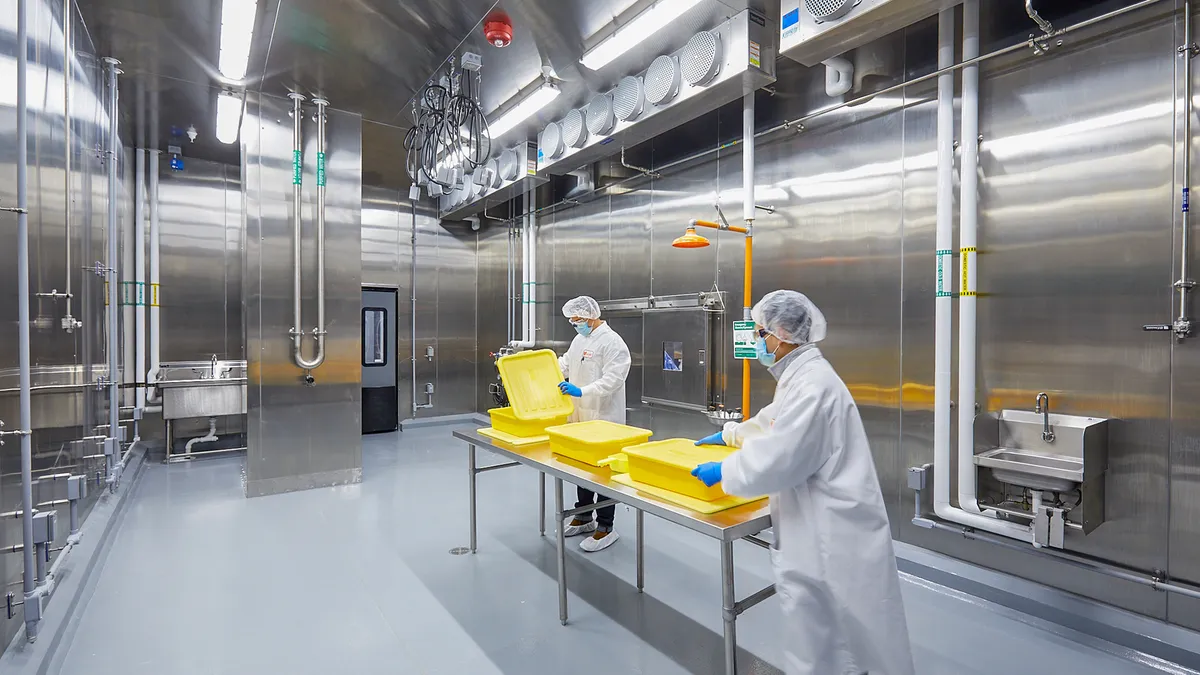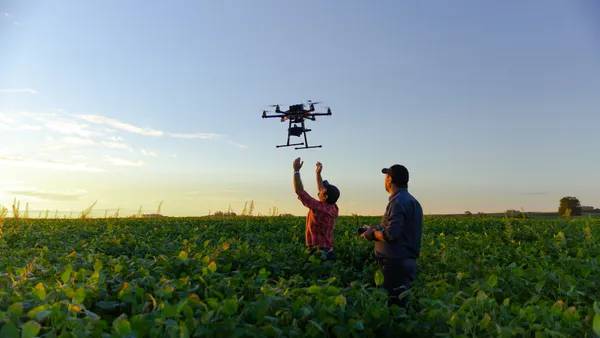Dive Brief:
- Arizona has proposed legislation that would make it illegal to “misrepresent” a product as meat. The bill, drafted by state Rep. Quang Nguyen, a Republican and public safety chair, targets the sale of cultivated meat.
- The bill seeks to prohibit the labeling of any products as “meat” that are not derived from livestock or poultry and instead were produced in a laboratory from cultured animal cells.
- This marks the latest pushback from lawmakers against the budding industry, as the traditional meat sector and some consumers raise concerns over its safety.
Dive Insight:
The proposed Arizona bill would also apply to any “synthetic product derived from a plant, insect or other source,” said Nguyen.
The lawmaker told Capital Media Services that the bill is more about transparency and disclosure within the industry and less about blocking the offering and purchasing of such products.
Protection of Arizona’s cattle ranchers was also top of mind in regard to the drafting of the bill, as state Rep. David Marshall, a Republican from Arizona, wants to take the legislation a step further by allowing business owners “adversely affected” by the sale of lab-grown meats to sue to stop the practice and be able to collect damages of up to $100,000.
Florida has also proposed legislation that would criminalize the sale and distribution of cultivated meat, both to protect the cattle and farming industries. State Rep. Tyler Sirois has reportedly said he hopes the Sunshine State is the first to ban lab-grown meat altogether.
Meanwhile, Texas Gov. Greg Abbott signed a bill in May 2023 requiring clear labeling of analogs of meat, poultry, seafood and eggs, as well as cultivated meat, which requires the products to clearly state they were made through cell cultivation.
In November 2023, a Nebraska senator reintroduced the Real Marketing Edible Artificials Truthfully Act, which would make alternative protein companies clearly display “imitation” on their packaging.
The labeling dispute has traveled overseas as well, where in November, Italy’s parliament gave its final approval for a law banning the use of food and animal feed produced in a lab.
“Arizona legislators are joining a growing chorus of consumer voices concerned about lab-grown meat - and rightfully so,” said Jack Hubbard, executive director of the The Center for the Environment and Welfare in a statement. “The lab-grown meat sector is facing increasingly strong headwinds as the public learns more about the use of ‘immortalized cells’ and the absence of long-term nutritional and health studies.”
Since its grand entrance to the U.S. market per full approval from the USDA last year, cultivated meat has run into challenges from all angles.
Consumer acceptance remains a steep hurdle to jump while production costs keep the space from offering competitive prices to traditional meat products.
According to Tommy Tobin, an attorney at Perkins Coie who specializes in regulatory matters within the food and beverage space, transparency will be key in 2024 in order for the industry to have a chance at success, he said in an earlier interview with Food Dive.
The Good Food Institute as well as early players in the space like Upside Foods and Eat Just have taken their stance that any prohibitions are a violation of their first amendment rights.
“Everyone should play by the same rules,” said GFI in a statement, “we actively oppose laws that unfairly restrict the use of standard meat and dairy terms on plant-based meat, plant-based milk, and other alternative protein labels.”












